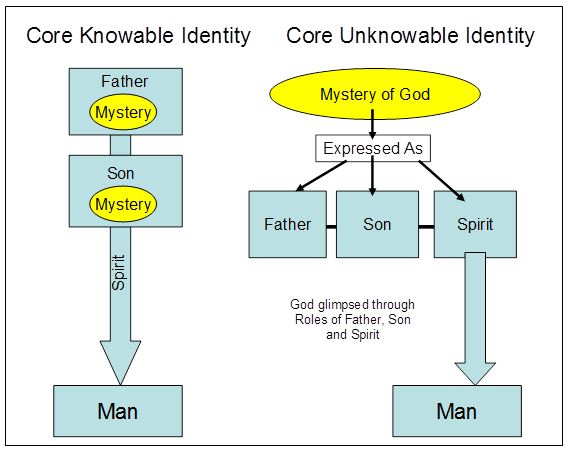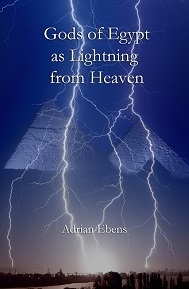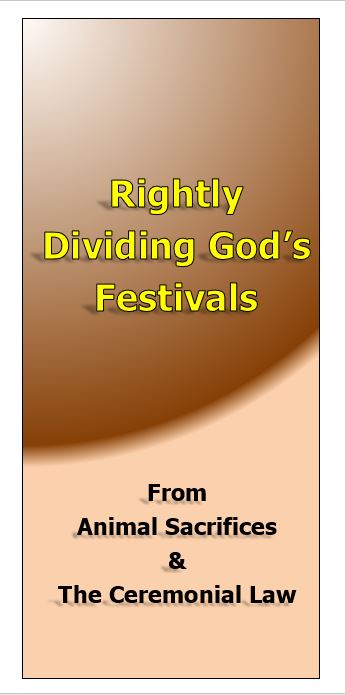23. Knowing God
A. Character Identification
As a young person growing up, I had the misfortune of being exposed to endless hours of television. One of the programs I watched on a regular basis was a program called “Happy Days”. For some of you, there will be an immediate knowledge of the program I am talking about. The program traced the lives of one particular family and their friends living in the late 1950’s One of the main characters was Richard Cunningham. After watching many episodes of this program I developed quite a connection with this character. I was familiar with his habits and character and some respects I began to emulate them. This was also true for the main character “the Fonz”. He was the cool guy with the leather jacket that always got the girls and could fix most situations. I developed quite a relationship with both of these characters.
If I had never bothered to look beyond the edges of my TV screen, I may to this day have maintained some kind of connection to these characters. But all this changed when I learned that Richard Cunningham was actually Ron Howard. I had known Ron as Richard, but I did not know Ron. Each time I look at Ron Howard, I think of Richard Cunningham and while there are personality traits that shine through Ron into Richard, the fact remains that Richard is not really a person. He is an expression or form of a person. He demonstrates the joys and struggles of a typical teenage youth growing up in the fifties. But in reality he is not real.
This is the kind of dilemma we encounter when we entertain the idea of a co-equal and co-eternal Trinity. We have been told that the three persons of the Godhead chose to manifest themselves to us in the form of Father, Son and Spirit, so that we could understand the character of God. As many people read the Bible and encounter the characters of Father and Son, we develop a close relationship to these characters. All this could be fine if we did not venture outside the edges of the Bible screen and just stayed in a relationship to the characters we see on the screen. But for others who are curious, they might begin to look at and wonder, “who are these three co-eternal beings that manifest themselves in this way?” The simple answer is that this is a mystery and that we can’t understand it. But the Trinity creates a door in the mind of man that can open at any time and raise this question.
B. Greek Thought Makes God Ultimately Unknowable
This whole discussion raises the question of core knowable identity versus a core unknowlable identity that can be glimpsed through forms or expressions. Put simply, in a literal understanding of Father and Son, the description of Richard Cunningham gives to us the core identity of Ron Howard, because they are one and the same as opposed to Richard Cunningham being just one mode of expression of Ron Howard that allows us to glimpse him and get a feel for Him, but not really know him.
The concept that God is an unknowable essence that manifests Himself in various forms to express who He is derives directly from Greek thought and was embraced by elements of Christianity through Justin Martyr and more robustly though Augustine.
Early Christians regarded Greek religion as holding views unworthy of God, but they were divided as to Greek philosophy. Christian philosopher Justin Martyr (c. 100-c. 165) saw Christianity as compatible with the highest and best Greek thought, whereas Tertullian (c. 160-c. 225) dismissed philosophy, saying that Jerusalem (faith) could have nothing to do with Athens (philosophy).
Consistent with theism, Augustine (354-430) regarded God as omniscient, omnipotent, omnipresent, morally good, the creator (ex nihilo) and sustainer of the universe. Despite these multiple descriptors, God is uniquely simple. Being entirely free, he did not have to create, but did so as an act of love. As his creation, it reflects his mind. Time and space began at creation, and everything in creation is good.
Augustine developed a theme found as early as Plato, Aristotle, and Zeno of Citium, that God is a perfect being. After enumerating a hierarchy of excellencies (things to be "preferred") Augustine affirms that God "lives in the highest sense" and is "the most powerful, most righteous, most beautiful, most good, most blessed" (On the Trinity, XV, 4).
But where Aristotle concluded that the greatest being must be aware only of himself, Augustine emphasized an opposite and distinctly Christian theme: God loves creatures supremely to the point of becoming incarnate in Christ in order to be revealed to them and to reconcile them to himself. Moreover, God is providentially active in history, from an individual level (Confessions) on up to dealings with entire nations (City of God). So as to the important subject of God's relationship to the world, Christian thought could not be more opposite Aristotle's view of a Being who contemplates only himself.
John Scotus Erigena (c. 810-c.877) who based his work largely on Augustine[1] had stronger affinities for Neo-Platonic thought. God created the universe according to eternal patterns in his mind and it is an expression of his thought, however incomplete an expression the cosmos may be.…God is ultimately unknowable, being beyond all language and categories. Aristotle's predicates and categories cannot apply to God because they assume some type of substance. Nevertheless God can be described, albeit inadequately, using both positive and negative statements. Positive statements are only approximate but can be made more exact by adding negative statements. For example, it can be said that God is good (positive), but also that he is not good (negative) in that he is above goodness. These can be combined in the statement that he is "supergood." In spite of these approximations, God must be reached by mystical experience. [2]
We might list several other scholars and theologians, but the above quotes give enough evidence that Christianity has to some degree been influenced by Greek thoughts of Theism. This influence has to some degree made God ultimately unknowable. We can glimpse Him but not really know Him. This lack of our a ability to know God is certainly minimized in the Protestant tradition of basing what is known about God on the revelation of Scripture, but regardless of this, the doctrine of the Trinity is inherently subject to the charge of being influenced by Greek thought, which in turn makes God ultimately unknowable at the core level.
C. Bible Presents Father and Son as Knowable Identities
As we have noted, the Bible presents God to us as a Father and Son fellowshipping with us through their Omnipresent Spirit. If we accept what the Bible says on face value. The Core identity of God is revealed in the personality of Father and Son. This is who they are at the core of their being. Notice:
1Co 8:6 yet for us there is one God, the Father, of whom are all things, and we for Him; and one Lord Jesus Christ, through whom are all things, and through whom we live.
Joh 17:3 And this is eternal life, that they may know You, the only true God, and Jesus Christ whom You have sent.
Notice how Ellen White states this:
God is the Father of Christ; Christ is the Son of God. To Christ has been given an exalted position. He has been made equal with the Father. All the counsels of God are opened to His Son. 8T 268
Hear the emphatic nature of these statements. God IS the Father of Christ; this is who He is at His core identity. Christ IS the son of God. This is who He is at His core identity.
This issue is extremely vital to grasp. The Bible and Spirit of prophecy reveal to us a Father and Son as real persons who are not role playing or expressing forms but simply being themselves. Being yourself is critical to having any sense of intimacy with someone. If the Father is not truly the Father, then using our example, we have a relationship with Richard Cunningham but this relationship is only a glimpse of the reality of Ron Howard. Such a relationship will suffer a lack of intimacy in real terms, because it is not real!
|
|
In respect of the mystery of God, when we allow the core identity of God to be literally Father and Son, then the mystery of God is contained within these personalities. The mystery lies within the actual person and the process of knowing them. If God is not literally Father and Son and these are simply modes of expression, then the mystery is not contained within these personalities and God is ultimately unknowable.
D. Trinity Presents all Members of Godhead as Representative – But of Who?
The Trinity gives us a frame of reference that does not house the mystery of the person of God and indeed leaves open the door for other possible frames of reference. Since the mystery is not contained, it makes God not truly knowable. The terms “Father”,“Son” and “Spirit” are roles assumed by the members of the Godhead to represent who? God? But which member of the Godhead? Well all of them represent God. If we believe that God as three persons assumed roles to demonstrate for humanity what the One God is really like, then it is not true to say that two individuals represent another, but that all represent the one God, but who is that God? Well it is three in one and one in three. It is a mystery, that can’t fully be known. So in essence God at His core identity can not really be known. Father, Son and Spirit assume roles to express what is in the mind and heart of the one true God. They are only modes of expression and not intrinsic points of knowability. Here is contained the seeds of Greek heresy, an unknowable essence that is expressed in various forms, but those forms are not intrinsic in themselves. This is the inevitable result of seeing God as a three person committee with assigned roles formed in eternity.
It would appear that the doctrine of the Trinity in which ever form you express it, is a stroke of Satanic genius that presents a picture of God that is not really knowable but gives us a sense that He is. Note the following:
“A prayerful study of the Bible would show Protestants the real character of the papacy and would cause them to abhor and to shun it; but many are so wise in their own conceit that they feel no need of humbly seeking God that they may be led into the truth. Although priding themselves on their enlightenment, they are ignorant both of the Scriptures and of the power of God. They must have some means of quieting their consciences, and they seek that which is least spiritual and humiliating. What they desire is a method of forgetting God which shall pass as a method of remembering Him. The papacy is well adapted to meet the wants of all these. It is prepared for two classes of mankind, embracing nearly the whole world--those who would be saved by their merits, and those who would be saved in their sins. Here is the secret of its power.” GC 572
What is the base doctrine that generates this power for the Papacy?
“The mystery of the Trinity is the central doctrine of Catholic faith. Upon it are based all the other teachings of the Church. . . . . The Church studied this mystery with great care and, after four centuries of clarifications, decided to state the doctrine in this way: In the unity of the Godhead there are three Persons, the Father, the Son, and the Holy Spirit, truly distinct one from another. Thus, in the words of the Athanasian Creed: 'The Father is God, the Son is God, and the Holy Spirit is God, and yet there are not three gods but one God.'” (Handbook for Today’s Catholic, 1977. pg. 12.)
Catholics clearly recognise that their entire faith system is based upon the doctrine of the Trinity.
While Seventh-day Adventists will deny that our understanding of the Trinity is the same as Catholicism, no one can deny that the key ingredients are present.[3] Certainly we must agree that our view of God forms the basis upon which all other doctrines are based. J.O Corliss understood this fact when in 1911 he stated:
It is of general understanding that the unity of God is the one doctrine upon which revelation lays the greatest stress. To guard this point was the principal object of the Jewish religion. This doctrine prefaces every important utterance of the Old Testament, from the speaking of the ten commandments to the outlines of minute ceremonials. Every prophetic warning kept this particular aspect in mind. The Lord Jesus always presented his Father in the forefront of all his teachings. The apostle Paul was careful to say that while there were in his day lords many and gods many, to him and his associates there was but one God, the Father, of Whom are all things, and we in him. 1 Cor. 8:5,6.[4]
The concept of Trinity confuses the personalities of Father, Son and Spirit. It makes it impossible to combine oneness and three-ness with Scriptural integrity. The concept of mystical oneness, the metaphorical use of the terms Father and Son and the conception of the Spirit as a completely separate being yet unified to the others raises a multitude of questions all of which are very confusing to answer. The spiritualizing or metaphorical use of the terms Father and Son, essentially destroy their personality as Father and Son. Notice what Ellen says in the following:
We are now to be on guard, and not drawn away from the all-important message given of God for this time. Satan is not ignorant of the result of trying to define God and Jesus Christ in a spiritualistic [USED HERE IN REFERENCE TO A SYSTEM OF INTERPRETATION, NOT SPIRITISM POPULARLY CALLED SPIRITUALISM.] way that sets God and Christ as a nonentity. The moments occupied in this kind of science are, in the place of preparing the way of the Lord, making a way for Satan to come in and confuse the minds with mysticisms of his own devising. Although they are dressed up in angel robes they have made our God and our Christ a nonentity. Why?--because Satan sees the minds are all fitted for his working. Men have lost tract of Christ and the Lord God, and have been obtaining an experience that is Omega to one of the most subtle delusions that will ever captivate the minds of men. We are forbidden to . . . set the imagination in a train of conjecture.--Diary, #48, pp. 153, 163, Aug. 25 and Aug. 28, 1904.
The above is a reference to the Kellogg crisis and the specifics of the issues then are different to what they are now, but the principles are the same: a metaphorical application to the terms Father and Son that alter the reality of their personalities. The current Adventist understanding of the Trinity is tantamount to denying the Father and the Son, because their personalities are altered under this metaphorical or spiritualized system.
E. The Trinity is a Drama that Denies the Plain Reading of Scripture
In reference to methodology, the Trinity doctrine attacks the heart of a plain reading of Scripture. God is in essence performing a drama, He is assuming a form that represents Him but is not actually Him. This subtle shift completely changes possibilities of how we read Scripture. It opens the door for subtle higher critical forms of thinking. For example, the Bible calls Christ “the Son of God”, yet I have heard preachers say in defence of the Trinity that Jesus is not “really” the son of God. The Scripture loses its plain reading ability and at every point Satan can infect us with the question, “Yea hath God said” or did God mean this literally.
Note the following example.
“A plan of salvation was encompassed in the covenant made by the Three Persons of the Godhead, who possessed the attributes of Deity equally. In order to eradicate sin and rebellion from the universe and to restore harmony and peace, one of the divine Beings accepted, and entered into, the role of the Father, another the role of the Son. The remaining divine Being, the Holy Spirit, was also to participate in effecting the plan of salvation. All of this took place before sin and rebellion transpired in heaven.
“By accepting the roles that the plan entailed, the divine Beings lost none of the powers of Deity. With regard to their eternal existence and other attributes, they were one and equal. But with regard to the plan of salvation, there was, in a sense, a submission on the part of the Son to the Father.”[5]
This is pure speculation without one shred of Biblical support. It also makes the members of the Godhead actors in a play and takes the metaphorical road of interpretation.
The direct result of Adventism embracing a Trinity view is an attack on the literal sanctuary in heaven. The enemy knows this is the secret power of Adventism. When Kellogg embraced a Trinitarian view[6] it was not long before Ballenger was attacking the Sanctuary teaching. The literal view of Father and Son is our only defence in protecting the Sanctuary. Note carefully what Ellen White says:
“Those who seek to remove the old landmarks are not holding fast; they are not remembering how they have received and heard. Those who try to bring in theories that would remove the pillars of our faith concerning the sanctuary or concerning the personality of God or of Christ, are working as blind men. They are seeking to bring in uncertainties and to set the people of God adrift without an anchor.” MR760 9.5
Notice this statement in Questions on Doctrine that indeed sets the people of God adrift without an anchor of plain Bible reading:
“In the interdenominational Millerite movement to which the early Seventh-day Adventists had belonged, a few of the leaders were members of a denomination known as "Christians." This group had sounded their no-creed, Bible-and-Bible-only rallying cry in the early nineteenth century Arminian revolt against the dominant ecclesiastico-political New England Calvinism, in which assent to the Westminster Confession of Faith was a sine qua non. In their zeal to reject everything not found in the Bible, the "Christians" were betrayed by over literalism into interpreting the Godhead in terms of the human relationships suggested by the words "Son," "Father," and "begotten," that is, into a tendency to disparage the non-Biblical word "Trinity"” Questions on Doctrine p. 46,47
It is logically inconsistent to have a non literal Father and Son in a literal Sanctuary. My theological training provided many examples of how this inconsistency cannot stand. Such inconsistency would guarantee the rise of men like Desmond Ford who directly attacked the literal sanctuary doctrine. If God is not literally revealed in the persons of Father and Son, then nothing in the Bible needs to be considered literal. While many would not go to extremes, the Trinity doctrine makes it convenient to symbolise plain statements that may cut across carnal desire.
F. Make Us a King, So we can be Like the Other Churches
One of those carnal desires was for Seventh-day Adventists to be accepted by other churches and lift the label of being called a cult. It is certainly apparent that names can hurt as much as sticks and stones if not more! After the book questions on Doctrine was produced, Eternity magazine made the following comment about Adventists
“I should like to say that we are delighted to do justice to a much-maligned group of sincere believers, and in our minds and hearts take them out of the group of utter heretics like the Jehovah’s Witnesses, Mormons, and Christian Scientists, to acknowledge them as redeemed brethren and members of the Body of Christ…..” [7]
We delude ourselves to think that we as Adventists started using the word Trinity only as a convenient way of expressing the Godhead. The use of this term opened to us the fellowship of other Protestant communions and removed from us the cult label. Such fellowship has seen in the past few decades a wholesale embracing of Pentecostal modes of thought and worship that are dragging us to the heart of spiritual Baal worship.
The bottom line is that an acceptance that God is a co-equal, co-eternal Trinity denies the ability of Father and Son to literally be Father and Son and such a denial destroys our ability to remain faithful to the belief of sola scriptura.
Now I am certain that there will be many people who have expressed a belief in the co-equal, co-eternal Trinity that will enjoy the blessings of God’s company in heaven. Martin Luther is a perfect example. There are millions who have enjoyed an intimate walk with their Saviour and Lord while still holding a Trinitarian view, for there are many who look at the forms of expression of Father, Son and Spirit and seek to look no further than this into the flawed base of this doctrine. But to face the challenges and pressures of the last days, we need a more perfect revelation of God’s Son to be enabled to hold fast. The heart of this doctrine will ultimately strip away everything that is Seventh-day Adventist, because Adventism is based upon the foundation of a Father and Son that at their core are knowable identities. The slow demise of Adventist faith and practice that we have seen over the last 80 years or so can trace its roots to this very doctrine. The attacks on the sanctuary, the investigative judgment, the nature of Christ, on Christian perfection, on worship styles, on roles of men and women in the church, on views of inspiration, on use of drama and everything else we might care to mention is traced to this unknowable God in a performance-based context called the Trinity.
G. No Condemnation But Rather Personal Conviction
In reading these words, you might feel quite upset with me. I can understand that. I will still love you by God’s grace. I pray that you can still do the same for me. But I will testify that in being released from this teaching I have found a freedom in Christ that I have longed for all my life. That is why I have a burden to share it with you. My God is now knowable, the mysteries are housed within the personalities of Father and Son revealed to me by the quiet working of the Spirit.
As we noted at the beginning of the previous chapter:
“I say, and have ever said, that I will not engage in controversy with any one in regard to the nature and personality of God. Let those who try to describe God know that on such a subject silence is eloquence. Let the Scriptures be read in simple faith, and let each one form his conceptions of God from his inspired word. Spalding and Magan collection.” p. 329
I will not condemn anyone else for what they believe or are seeking to express in terms of their understanding. But I have the right to study and believe freely with my own Bible, just as you do. Let’s study together and get the Scripture truth rather than seek to defend systems of belief that cannot stand the scrutiny of inspiration.
Let each of us study God’s inspired word, seeking the truth about Him who promises that we will find Him when we seek for Him with all our heart. Jer 29:13
[1] http://en.wikipedia.org/wiki/John_Scotus_Erigena
[2] Internet Encyclopedia. http://www.iep.utm.edu/g/god-west.htm
[3] See next chapter for more detail
[4] J.O Corliss. RH Sep 7, 1911, Tracings of the Prophetic Gift. See Appendix I for entire article.
[5] Gordon Jensen, RH, 31-10-1996
[6] See Appendix F
[7] ‘Eternity’ magazine ‘Are Seventh-day Adventists Christians?’ by Donald Grey Barnhouse. September 1956.






